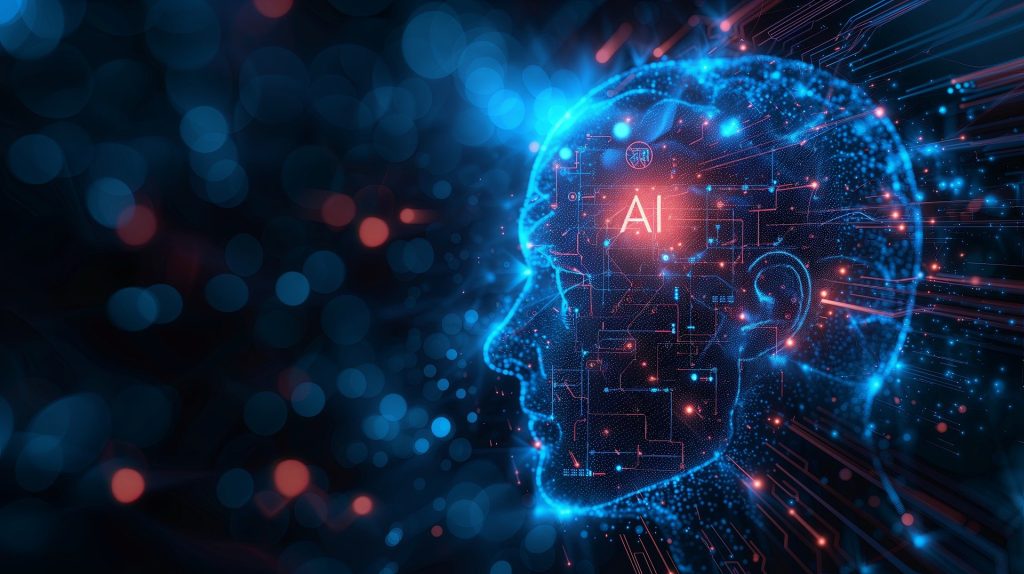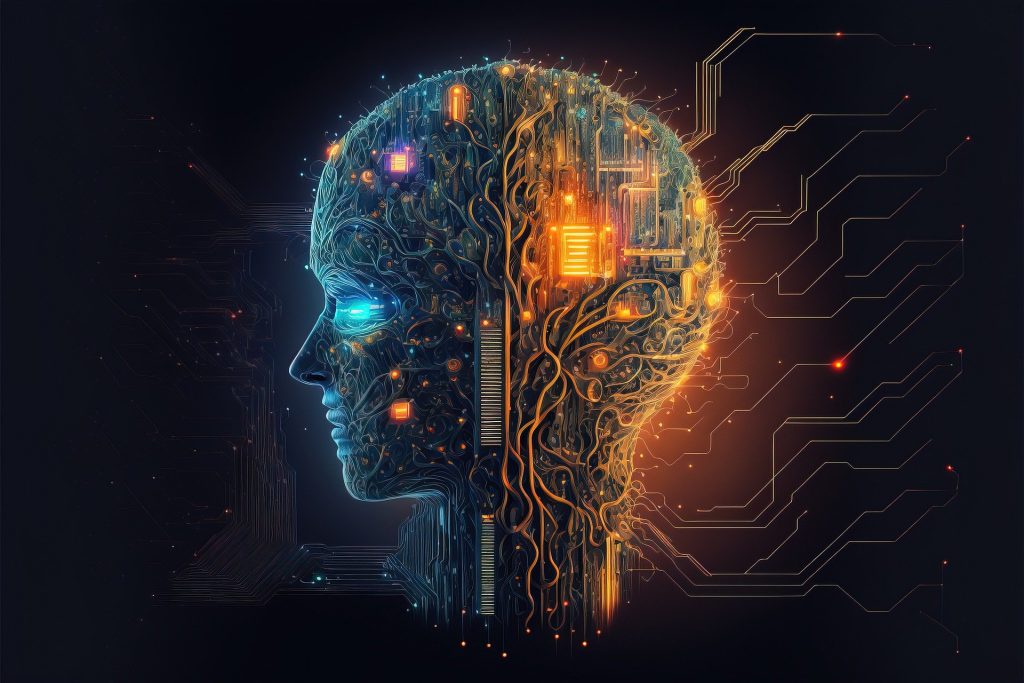Ethics and AI: The Importance of Responsible AI Development
As Artificial Intelligence (AI) becomes increasingly woven into the fabric of modern society, it raises critical questions about ethics and responsibility. AI technologies—from autonomous vehicles to facial recognition and conversational agents—are transforming industries and shaping the future. However, with these advancements come concerns about privacy, bias, accountability, and the broader societal implications of AI. The call for responsible AI development is louder than ever.
This blog delves into the ethics of AI and why responsible AI development is crucial for ensuring that this technology benefits society while minimizing risks.
The Ethical Challenges of AI
AI technologies offer incredible potential to solve complex problems, but they also come with ethical challenges that need careful consideration. Some of the most pressing issues include:
1. Bias and Discrimination
One of the biggest concerns in AI development is the issue of bias. AI systems learn from vast datasets, and if these datasets contain biased information—whether due to historical inequalities, incomplete data, or poor data curation—the AI can replicate and even exacerbate these biases.
- Examples: AI-driven hiring algorithms have been found to favor male candidates over female ones based on biased historical hiring data. Similarly, facial recognition technologies have demonstrated higher error rates when identifying individuals with darker skin tones.
- Impact: When left unchecked, biased AI systems can lead to unfair treatment in areas like hiring, law enforcement, healthcare, and lending, perpetuating inequalities rather than resolving them.
2. Privacy Concerns
AI technologies often require massive amounts of data to function effectively. Whether it’s personal data for social media algorithms or biometric data for facial recognition, AI systems thrive on information. However, this raises significant privacy concerns, particularly when it comes to how this data is collected, stored, and used.
- Examples: AI systems embedded in smart devices like home assistants (e.g., Amazon Alexa, Google Home) collect and store users’ personal conversations and behaviors, often without explicit consent or clear understanding of how the data will be used.
- Impact: Without proper regulation, the widespread collection of personal data can lead to breaches of privacy, data misuse, or the creation of surveillance states that compromise individual freedoms.
3. Lack of Accountability
As AI systems make decisions, the question of accountability becomes more complex. In cases where AI-driven decisions lead to harm—such as an autonomous vehicle causing an accident—who is responsible? The programmer, the data scientist, the company, or the AI itself?
- Examples: When an autonomous car gets involved in an accident, determining who is at fault can be a legal and ethical minefield. Similarly, when a healthcare AI system makes a wrong diagnosis, it’s unclear whether the blame lies with the technology or the human operators.
- Impact: The lack of accountability frameworks for AI can lead to unclear responsibility in cases of harm, making it difficult to seek justice or ensure ethical oversight.
4. Job Displacement
While AI promises to improve efficiency and innovation, it also raises concerns about job displacement. Automation, driven by AI, is rapidly transforming industries like manufacturing, logistics, and even services. While new types of jobs will emerge, many worry that the transition could lead to widespread unemployment, particularly for low-skill jobs.
- Examples: AI-driven automation is replacing roles like truck drivers, customer service representatives, and factory workers. Though it’s argued that new jobs in tech will be created, the transition might leave many workers displaced with limited options for retraining.
- Impact: The potential for large-scale job displacement could lead to economic inequalities and societal unrest if not managed responsibly.
The Principles of Responsible AI Development
To address these challenges, the AI community and stakeholders must adhere to ethical principles that guide the development and deployment of AI systems. Here are the key principles for responsible AI development:
1. Fairness and Inclusivity
AI systems should be designed to be fair and inclusive, ensuring that they do not replicate or exacerbate existing biases. This means curating diverse datasets, regularly auditing AI systems for bias, and employing transparency in decision-making processes.
- Solution: Developers should actively seek to remove biases in the data used to train AI models and create inclusive systems that treat all individuals fairly, regardless of race, gender, or socio-economic background.
2. Transparency
Transparency is key in AI development. People should understand how AI systems make decisions and how their data is used. Explainable AI—the concept that AI decisions should be interpretable by humans—can help in this regard.
- Solution: AI developers should prioritize making algorithms explainable and understandable to non-experts. Companies using AI should provide clear, easy-to-understand explanations of how their systems work and the decisions they make.
3. Privacy and Data Protection
Given the immense amounts of data AI systems process, privacy protection is a fundamental principle of responsible AI development. Companies and developers must prioritize user privacy by ensuring that data is collected ethically, anonymized when possible, and protected against breaches.
- Solution: Implement data encryption, anonymization techniques, and adhere to privacy laws such as the General Data Protection Regulation (GDPR) to ensure that users’ personal information remains safe.
4. Accountability
AI systems must have clear frameworks for accountability, especially in high-stakes sectors like healthcare, law enforcement, and autonomous vehicles. This means creating mechanisms for individuals to report problems or harm caused by AI systems, as well as frameworks to hold the appropriate parties responsible.
- Solution: Companies should establish accountability guidelines and processes that clearly define who is responsible for AI decisions and actions. Governments may also need to introduce regulations to clarify liability in the event of AI failures.
5. Human-Centered AI
AI systems should be designed with human values at the core. This means ensuring that AI enhances human well-being rather than undermining it. Human-centered AI focuses on augmenting human capabilities, creating opportunities, and addressing societal challenges.
- Solution: Developers should focus on designing AI systems that benefit society, improve access to opportunities, and enhance the quality of life for individuals and communities.
The Role of Governments and Regulations
Governments and regulatory bodies also play a critical role in ensuring responsible AI development. While companies and developers must prioritize ethical considerations, regulations provide the framework that ensures compliance with these ethical standards.
- AI Regulations: Several countries and organizations have begun drafting AI guidelines to ensure that technology development aligns with ethical principles. The European Union’s AI Act is one such effort aimed at regulating high-risk AI applications and ensuring transparency, fairness, and accountability.
- Collaboration between Stakeholders: Governments, corporations, and civil society should collaborate to create clear guidelines that protect people while encouraging innovation. This includes establishing AI ethics boards and ensuring that there is adequate oversight in the deployment of AI systems.
Conclusion
AI has the potential to revolutionize industries, solve global challenges, and improve lives—but only if it’s developed responsibly. Addressing concerns around bias, privacy, accountability, and job displacement is crucial to ensuring that AI serves the best interests of society. By following ethical principles and adhering to regulations, we can build AI systems that are fair, transparent, and beneficial to all.
The future of AI is bright, but it’s up to developers, businesses, and governments to ensure that this technology evolves in a way that enhances human life while minimizing harm. Ethical AI development is not just an option—it’s a responsibility we must all embrace for a better and more equitable world.



